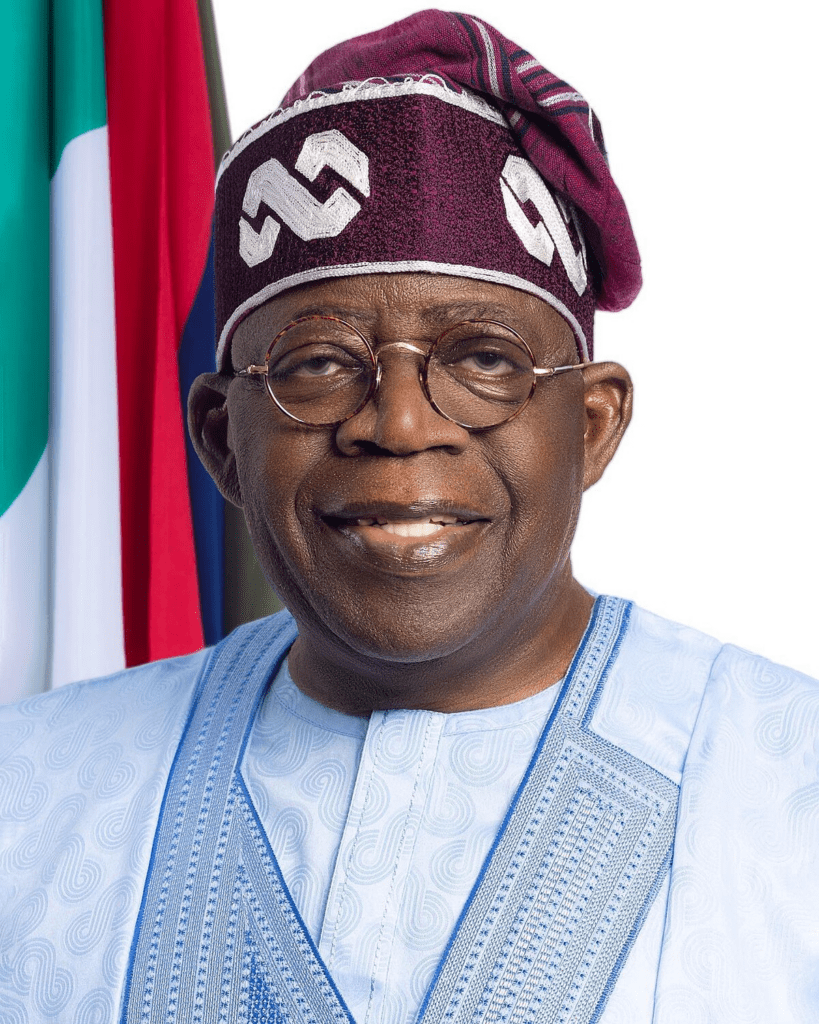THE POLITICAL AND HISTORICAL INSIGHTS BETWEEN GHANA AND NIGERIA; TINIBU’S VICTORY PUTS NPP ON THE PATH OF REPEATING HISTORY
4, 3, 2024
299

The one-touch victory of Asiwaju Adekunle Bola Ahmed Tinbu, the Jagaban of Lagos, a political colossus in Africa, made me dig into the historical archives and mirrored events between Ghana and Nigeria as follows:
1. On 15th January, 1966 a group of soldiers led a mutiny that suspended the first democratically elected government of Nigeria which saw to the assumption to power of Major General Johnson Aguiyi-Ironsi who formed the Supreme Military Council of Nigeria. This was mirrored in Ghana just a month later, on February 24, 1966, which saw the overthrow of Ghana's first democratically elected government and the assumption of power of the National Liberation Council led by Lt. Gen. Ankrah and later A. A. Afrifa.
2. There was a counter Coup that ushered Nigeria into the Biafra Civil War, later Gen. Murtala Ramat Muhammed became the military Head of State but was assassinated in a failed coup and replaced by Olusegun Obasanjo in 1979. General Murtala Mohammed has been named after the first and busiest international airport in Nigeria (Lagos). Similarly, the “Operation Guitar Boy” failed coup d'état in April 1967, which also led to the assassination of Lt. Emmanuel Kwasi Kotoka, who was one of the key members of the governing NLC and was also named after the first international airport and the busiest airport in Ghana.
3. On 9th July 1979, Ghana held its third democratic elections that saw the coming into force of the Hilla Limann's People's National Party (PNP), who was then the first president from Northern Ghana. Barely a month later, Nigeria also held its second democratic elections, which led to the assumption to the Presidency, Shehu Shagari of the National Party of Nigeria (NPN) 1979. He was also the first president of Northern Nigeria.
4. On 31st December 1981, the Provisional National Defence Council (PNDC) was the name of the Ghanaian government after the People's National Party's elected government under the leadership of Dr. Hilla Limann was overthrown by Jerry Rawlings. The military regime was sustained until the end of the 1980’s. Similarly, on 31st December 1983, the democratically elected government of President Shehu Shagari was overthrown in a military coup, and the junta of Major General Muhammadu Buhari was imposed as head of state.
5. In November 1992, Ghana held it democratic elections after the long period of military rule of the PNDC from 1981 till 1992, which saw the boycott of the elections by the NPP citing several issues of voter malpractice. It, however, led to the democratic regime of Jerry John Rawlings under the umbrella of the NDC. Similarly, Nigeria held it democratic elections in June 1993, Moshood Abiola emerged the victor of the elections but he was never declared because the military regime of Ibrahim Babagida accused the electoral process to have been characterised by malpractices, as a result, the military regime of Sani Abacha took over.
6. In February 1999, Nigeria held its second elections of the 1990’s as the period was characterised by democratic transitions. Olusegun Obasanjo of the People's Democratic Party (PDP) emerged victorious and established the longest republic in the history of Nigerian elections. Similarly, in Ghana, the John Agyekum Kuffour’s New Patriotic Party (NPP) government was established after winning the December 2000 elections.
7. In April 2003, in Nigeria, the government of the incumbent PDP, under the leadership of Olusegun Obasanjo, won the election. Similarly, in Ghana, the incumbent government, the NPP under John Agyekum Kuffour, won the December 2004 elections.
8. In April 2007, in Nigeria, the incumbent government of the PDP won a controversial election with the new leadership of Umaru Yar'Adua as President and Good-Luck Jonathan as Vice President. His contender during this election was Muhammadu Buhari. In Ghana, however, the incumbent government (NPP) under the new leadership of Nana Addo Dankwa Akufo-Addo lost the elections to the biggest opposition party, the NDC, under the leadership of John Evans Atta Mills, and vice by John Dramani Mahama. Later, both vice presidents’ became presidents’; and both losers also became presidents too at another point in time.
9. In May 2010, in Nigeria, the President of Nigeria died after battling ill health. He was succeeded by his vice president, Goodluck Johnathan. Goodluck Johnathan went on to win the 2011 elections, and his fiercest contender was Muhammadu Buhari. Similarly, in Ghana, the sitting president, John Evans Atta-Mills, died in July 2012 and was succeeded by his Vice-President, John Dramani Mahama. John Dramani Mahama went on to win the 2012 general elections of Ghana; he was also contested by Nana Addo Dankwa Akufo-Addo, who challenged the elections at the Supreme Court of Ghana.
10. In Nigeria in 2015, the incumbent government of the PDP, with the leadership of Goodluck Johnathan, who was seeking a second term lost power to the All Progressives Party (APC) led by Muhammadu Buhari as President. Similarly, in Ghana in 2016, the incumbent government of the NDC under the leadership of John Dramani Mahama, who was seeking a second term, lost the elections to the opposition NPP under the leadership of Nana Addo Dankwa Akufo-Addo as President.
11. In 2019, the incumbent government of the APC Muhammadu Buhari maintained political power as they emerged victors of the 2019 general elections as opposed by the PDPs Abubakar Atiku and vice by Peter Obi
12. Similarly, in Ghana, the incumbent government of the NPP, Nana Addo Dankwa Akufo-Addo, maintained power by winning the 2020 general elections, with the main opposition party, the NDC, led by John Dramani Mahama and Jane Naana Opoku Agyemang as the running mate.
As the leader of the APC party, Bola Ahmed Tinubu has been declared and sworn in as President of Nigeria, breaking the 8-year political cycle. Will we witness the same in Ghana in next year’s general elections? I am not a prophet; but just as we predicted Tinubu’s victory correctly. I see the ruling New Patriotic Party retaining power in 2024 with Dr. Mahamudu Bawumia as leader. Believe…..History is certain to smile on the NPP!!!
*Prince A. A. Sadat*
(NPP, National Youth Wing Administrator)
Powered by Froala Editor

